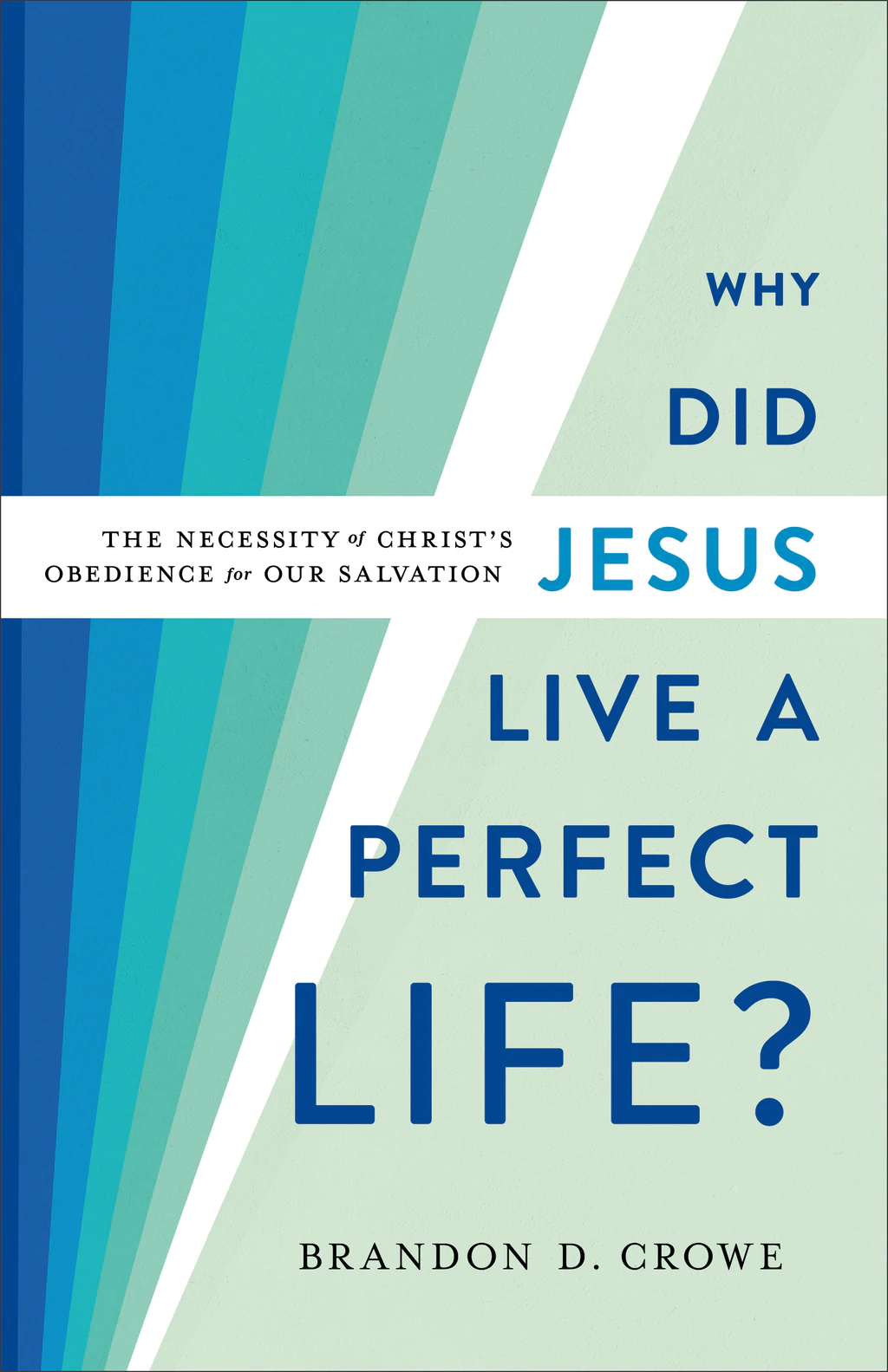
Brandon D. Crowe
Reviewed by: Robert T. Holda
Why Did Jesus Live a Perfect Life?: The Necessity of Christ’s Obedience for Our Salvation, by Brandon D. Crowe. Baker Academic, 2021. Paperback, 224 pages, $14.60 (Amazon). Reviewed by OP pastor Robert T. Holda.
As a child, I enjoyed David MacCaulay’s The Way Things Work, a children’s reference book, explaining how various technologies work from microwave ovens to jet engines, with detailed cross sections and diagrams. In my opinion, Brandon Crowe’s Why Did Jesus Live a Perfect Life? does for the obedience of Christ what MacCaulay did for can openers and the like. Crowe’s intent is to defend and explain the historic Christian position that Christ’s perfect obedience is necessary for our salvation, but what he achieves is much broader. Although there are no cross sections or diagrams and few illustrations, Crowe takes his readers on a deep theological dive into the inner workings of the gospel, logically unpacking the details of Christ’s redemptive work.
The book begins with two chapters devoted to definitions, continues with five chapters exegeting the most relevant New Testament passages, and concludes with three chapters of implications. Although Crowe didn’t write this book with the primary intent of refuting error, his thesis directly opposes the New Perspective on Paul and the recent, erroneous claim, that saving faith is best understood as allegiance (5). Crowe’s motivation in writing was to clarify the complex realities involved in our salvation in the light of God’s requirement of perfect obedience for eternal life (6). This position puts eternal life out of the reach of sinners, preserving the uniqueness of Christ’s claim to have earned it by his obedience.
Crowe doesn’t start defining the obedience God requires with the obedience set forth in the Mosaic law code, but with the obedience required of Adam in the beginning (36). In every section and from every passage and every imaginable angle, Crowe convincingly makes his case, however redundant his conclusions may be. I found his exegesis of Galatians 3:10–14 (65–77) and of Luke’s genealogy (91), as well as the connection he makes between Christ’s perfect obedience and his resurrection (121–143) to be some of his most helpful insights.
Without turning away from his primary argument, Crowe provides his readers with equally clear, if less expansive, explanations of a surprising number of related theological concepts, including God’s moral law, the union of Christ’s divine and human natures, faith, justification, the difference between imputation and infusion, sanctification, good works, and Christ’s resurrection as vindication. At the outset, Crowe advocates for a combined use of biblical, historical, and systematic theologies (10–13) and the use of technical theological language (30–31), which he regularly uses, but always defines. I found Crowe’s writing to be very readable, but readers should understand that just as anyone who wants to understand how their car works must learn new terms, those who desire clarity about the gospel will likewise need to expand their vocabulary. Crowe helpfully uses illustrations at chapter openings in order to orient his readers to the flow of his upcoming argumentation. Although his writing is exceedingly clear, this book would be better suited for an even wider audience if illustrations were also used to aid his readers’ comprehension of the theological concepts being treated. Direct application is also present, but slim. Although seminary grads or experienced theology readers may not learn much new in this book, I still recommend it to all who desire increased clarity about the necessity of Christ’s perfect obedience.
June 15, 2025
June 08, 2025
June 01, 2025
Anxiety: Finding the Better Story
May 25, 2025
April 27, 2025
The Devoted Mind: Seeking God’s Face in a World of Distraction
April 20, 2025
April 13, 2025
© 2025 The Orthodox Presbyterian Church